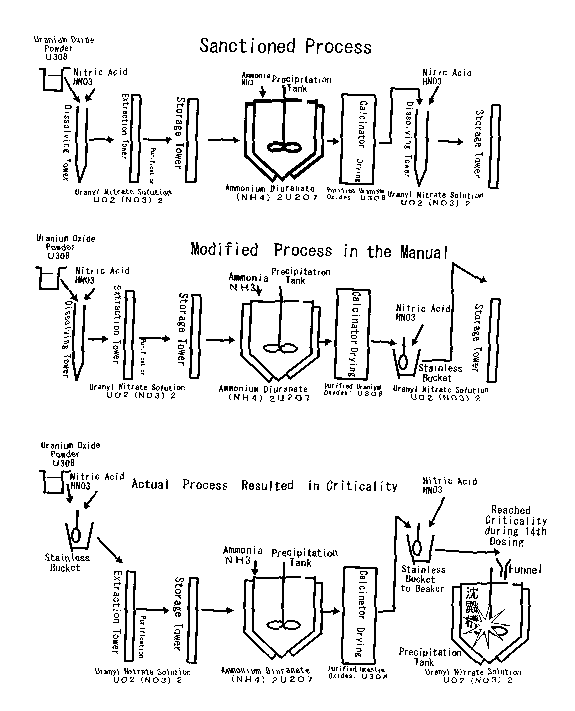Case 3: Criticality Accident at JCO in 1999
Case 3 of Teaching Case Studies of Accidents in Nuclear Energy Development in Japan describes an "irradiation" accident at JCO, a subsidiary of Sumitomo Metal Mining Co.
This case is an excerpt from Three Teaching Case Studies of Accidents in Nuclear Energy Development in Japan.
In 1999, a criticality accident at JCO, a subsidiary of Sumitomo Metal Mining Co., astonished the Japanese people and the world at large
Three kinds of the operation are shown in Fig. 5. This was a special operation for them and, therefore, required some special care. But no qualified engineers were in charge of the operation and workers were not educated well for the operation and accompanying risks partly because the company was in a difficult financial position, which could not be a reason of the excuse. This is simply a problem of poor management and management ethics.
Figure 5:
This accident teaches students following lessons:
- Poor management. Managements illegally changed the operation manuals and they neither allocated qualified engineers nor educated workers for the operation.
- The management of the operation was so badly controlled that the workers tried to improve efficiency without knowledge and approval of qualified engineers. Trust and good communication between engineers and workers are essential for safety of any operation.
- Even under such a situation, engineers who were not in charge of the operation could have pointed out the danger to the management, when they found them.
Several managers (ex-engineers) including the plant manager were put on trial and JCO closed all the operation due to this accident.
Author: Hiroshi Iino, Kanazawa Institute of Technology, Japan.
Presented at the OEC International Conference on Ethics in Engineering and Computer Science, March 1999.


